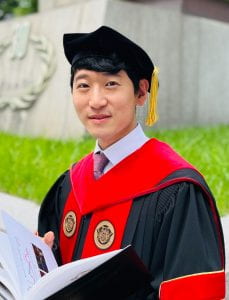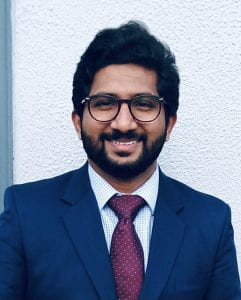Principal Investigator
Brian Popko, PhD
Brian Popko graduated from Penn State Uni versity in 1980 with a BS degree in Microbiology and Immunology, and in 1984 received his PhD degree in Microbiology and Immunology from the University of Miami School of Medicine. Subsequently, he did a postdoctoral fellowship with Dr. Leroy Hood at Caltech where his interest in myelinating glial cells developed. Dr. Popko started his own laboratory in the Neuroscience Center at the University of North Carolina at Chapel Hill in 1988, where he stayed until moving to the Department of Neurology at the University of Chicago in 2002. At the University of Chicago, Dr. Popko was the Jack Miller Professor in Neurological Disorders, the Director of the Center for Peripheral Neuropathy, and the Associate Chair for Research in the Department of Neurology. In 2020, Dr. Popko moved to Northwestern University Feinberg School of Medicine, where he is the Scientific Director of the Division of Multiple Sclerosis and Neuroimmunology and the William Frederick Windle Professor of Neurology.
versity in 1980 with a BS degree in Microbiology and Immunology, and in 1984 received his PhD degree in Microbiology and Immunology from the University of Miami School of Medicine. Subsequently, he did a postdoctoral fellowship with Dr. Leroy Hood at Caltech where his interest in myelinating glial cells developed. Dr. Popko started his own laboratory in the Neuroscience Center at the University of North Carolina at Chapel Hill in 1988, where he stayed until moving to the Department of Neurology at the University of Chicago in 2002. At the University of Chicago, Dr. Popko was the Jack Miller Professor in Neurological Disorders, the Director of the Center for Peripheral Neuropathy, and the Associate Chair for Research in the Department of Neurology. In 2020, Dr. Popko moved to Northwestern University Feinberg School of Medicine, where he is the Scientific Director of the Division of Multiple Sclerosis and Neuroimmunology and the William Frederick Windle Professor of Neurology.
Over the past three decades, the Popko lab has made important contributions to our understanding of myelinating glial cell development, the lipid and protein components of the myelin sheath, the role of the myelination process in establishing axonal domains, the importance of endoplasmic reticulum stress on the viability and function of oligodendrocytes, as well as the influence of the immune system on myelinating cells. The lab has been focused on the generation and analysis of mouse models. In addition to contributing to a basic understanding of the myelination process, the studies conducted in the Popko Lab have provided critical insight into disease processes that functionally disrupt this critical component of the nervous system.
Lab Members
Yashika Awasthi, PhD – Postdoctoral Scholar
 Yashika’s current research is focused on investigating the protection mechanisms of oligodendrocytes against neuro-inflammation, which is a key step in understanding the pathology of MS. For this work, she is using double transgenic mice – GFAP-tTA and TRE-IFN-gamma – which have been exposed to DOX and released at various times. These mice have been aging while expressing. IFN-g in the CNS which is currently being quantified. As a next step, EAE will be introduced in these mice and the effect of already widespread IFN-g expression on the subsequent pathology in the mice brain will be characterized using immunohistochemistry, RNA scope, and electron microscopy.
Yashika’s current research is focused on investigating the protection mechanisms of oligodendrocytes against neuro-inflammation, which is a key step in understanding the pathology of MS. For this work, she is using double transgenic mice – GFAP-tTA and TRE-IFN-gamma – which have been exposed to DOX and released at various times. These mice have been aging while expressing. IFN-g in the CNS which is currently being quantified. As a next step, EAE will be introduced in these mice and the effect of already widespread IFN-g expression on the subsequent pathology in the mice brain will be characterized using immunohistochemistry, RNA scope, and electron microscopy.
Young Hyun Che, PhD – Postdoctoral Scholar
Y oung Hyun is currently investigating the role of Oligodendrocytes in inflammatory responses. Particularly, he is focusing on the transcriptomic changes of Oligodendrocytes in Multiple Sclerosis (MS). By using MS-imitating and genetically mutated mouse models, he makes efforts to understand molecular changes of oligodendrocytes and to reveal the pivotal roles of them in pathological mechanisms in MS.
oung Hyun is currently investigating the role of Oligodendrocytes in inflammatory responses. Particularly, he is focusing on the transcriptomic changes of Oligodendrocytes in Multiple Sclerosis (MS). By using MS-imitating and genetically mutated mouse models, he makes efforts to understand molecular changes of oligodendrocytes and to reveal the pivotal roles of them in pathological mechanisms in MS.
Emeric Merour, PhD – Postdoctoral Scholar
 Emeric is working to understand how oligodendrocytes resist to oxidative stress during ageing. For this, he is using mice line KO for key elements of the ISR, NRF2 or HIF1a pathways and is comparing their oligodendrocyte populations at the cellular or molecular level and their behavior in old ages. In addition, he is also studying the impact of the diet on oligodendrocytes and its effect on neurovascular dementia. His work aims to find new ways to protect oligodendrocytes against the effects of the increased oxidative stress observed with age in most neurodegenerative disorders and dementia.
Emeric is working to understand how oligodendrocytes resist to oxidative stress during ageing. For this, he is using mice line KO for key elements of the ISR, NRF2 or HIF1a pathways and is comparing their oligodendrocyte populations at the cellular or molecular level and their behavior in old ages. In addition, he is also studying the impact of the diet on oligodendrocytes and its effect on neurovascular dementia. His work aims to find new ways to protect oligodendrocytes against the effects of the increased oxidative stress observed with age in most neurodegenerative disorders and dementia.
Vaibhav Patil, PhD – Postdoctoral Scholar
 Vaibhav is currently investigating the role of m6A modification of mRNA in oligodendrocyte lineage cells at various stages of development using genetically modified mouse models. In addition, his work focuses on the significance of oligodendrocyte specific m6A mRNA modification in multiple sclerosis, for which he is using mouse models of demyelination and inflammation. In addition, he is also actively involved in understanding the molecular changes that occur during oligodendrocyte development, CNS myelination and remyelination under inflammation and the integrated stress response.
Vaibhav is currently investigating the role of m6A modification of mRNA in oligodendrocyte lineage cells at various stages of development using genetically modified mouse models. In addition, his work focuses on the significance of oligodendrocyte specific m6A mRNA modification in multiple sclerosis, for which he is using mouse models of demyelination and inflammation. In addition, he is also actively involved in understanding the molecular changes that occur during oligodendrocyte development, CNS myelination and remyelination under inflammation and the integrated stress response.
Maria Dima – Research Technologist I
 Maria has been working on projects that investigate the impact of small molecules on the integrated stress response pathway, in an effort to protect oligodendrocytes from inflammation through ISR enhancement.
Maria has been working on projects that investigate the impact of small molecules on the integrated stress response pathway, in an effort to protect oligodendrocytes from inflammation through ISR enhancement.
Li Kai, MD, PhD – Lab Manager

Li Kai received her M.D., Ph.D. (Medicine) from China in 2001. She has over 10 years of solid research laboratory practice experience. She is working for Dr. Popko’s lab as a Lab Manager.
Contact
Gloria Wright – Lab Administrator

Contact
Matt DeBerge, PhD – Research Assistant Professor

Matt is interested in how oligodendrocytes link cardiovascular disease to increased risk for vascular dementia, the second most common cause of dementia after Alzheimer’s Disease. The goal is to better understand how oligodendrocytes respond to cytotoxic changes in the CNS during cardiovascular disease to fuel the development of new neuroprotective strategies. To explore this link, he is subjecting mice to a novel model of heart failure with preserved ejection fraction and applying single cell and spatial transcriptomics to measure changes in oligodendrocytes. As an immunologist by training, Matt is also concurrently studying how neuroinflammation links cardiovascular disease and vascular dementia.

